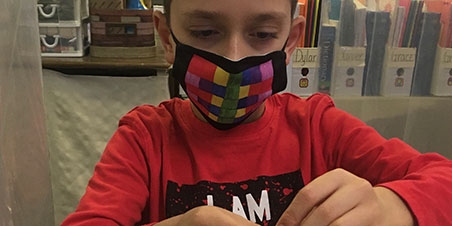Parents: What We Expect
We expect parents to work with Discovery’s staff and principal to help their child learn. That means respecting school policies about dress, homework, absences and tardiness. It means supporting your child’s teacher and the school, being active and involved in your child’s learning; reading about their work in the logbook, talking to them about their day, making sure homework assignments are completed, and listening to them read at night.
Here’s how you can help:
Attend school events. This gives your child the message that they and the school are both important.
Give your child’s teacher the benefit of the doubt. This reinforces the message that they and the school are both important. Keep in mind that children with learning disabilities often have communication and/or social difficulties. Misinterpretations or miscommunications may have occurred.
Don’t wait for a problem, to get to know the teacher. Start out on a positive note by getting to know them early in the year – it will be easier to communicate if a problem comes up.
Logbook. Don't just sign your child's log book, read it and feel free to write a positive note to your child or the teacher.
Let us know if your child will be absent or late. Teachers need to know to ensure that students maintain progress. Frequent absences and tardiness makes learning harder.
Keep your contact information and emergency information up to date. If you get a new phone, or move, or have new information, please let us know as soon as you can.
Reading every day pays off. One of the best ways to help your child succeed in school is to read together every day. You don't even have to read the same thing. Just designate 20 minutes a day as “Family Reading Time”.
Establish Routines. Make sure your child gets a good night’s sleep and has a structured routine during the day. Schedule meals, homework, etc. for the same time daily.
Ensure that your child eats well. Adequate nutrition has been shown to improve learning skills, especially memory work. Inadequate nutrition contributes to lower test scores, irritability and poor concentration. Try to avoid processed foods, and choose whole grains, fruits and vegetables, and low fat dairy products whenever you can. Students are not allowed to bring gum, pop, or candy to school.
Don’t accept, “I don’t know”, or “Nothing” when you ask about your child’s day. By requiring your child to spend 5 minutes a day reflecting on school studies you will not only be encouraging them to exercise their memory, review vocabulary or concepts, and utilize communication skills but also to be more thoughtful and reflective in regards to their own learning.
Set realistic academic goals with and for your child. Reaching realistic goals helps your child learn what ‘success’ feels like.
Never let your child ‘use’ their learning disability as an excuse. Learning how to cope with the disability and work towards a goal is an important life-skill.
Focus on your child’s strengths. Every child has strengths and weak spots. Focusing on strengths gives your child something to feel good about and encourages them to take on greater challenges.





